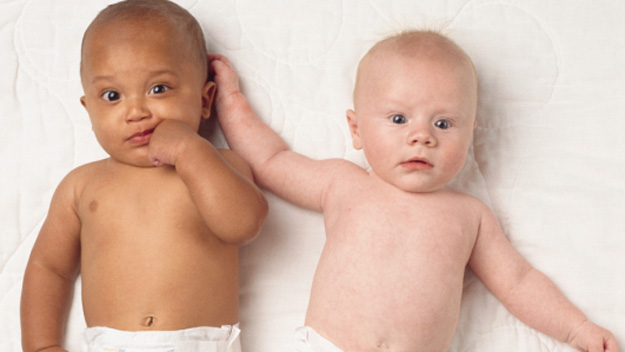Retired businesswoman Carol (not her real name) is 72, single, and determined to find an egg donor. “I want a baby,” she says simply of her journey to become a mother.
“I’m very healthy and fit. I don’t drink or smoke. I’ve looked after myself and am in good shape. I’m also financially secure. Why isn’t it OK for me to have a baby? All right, I’m 72, but I don’t look it, and I don’t feel it either.”
Lack of understanding
Carol wants to remain anonymous because, in the past, when she has voiced what she wants to do, the response has been negative — especially from women. “They just don’t understand what it’s like to not have a baby, particularly if they have children themselves.”
The question has to be why didn’t Carol try for a baby years ago? “I was very busy,” she replies.
“I was in business and helped set up a research institute. In my experience, if you had a career 30 or 40 years ago, you weren’t taken seriously as a career woman if you wanted children. The time wasn’t right for me then.”
“I started to think about having a baby in my early 50s and tried IVF using my own eggs. It didn’t work. Hearing about women having babies in their 60s has made me think, why not me?”
She said that the case of Elizabeth Adeney, a 66-year-old businesswoman from Suffolk, England, who gave birth in May, had given her hope. “Everything went well for her, so it has made me feel the next step for me now is to look into it seriously for myself.”
Breaking boundaries
But even if Carol were to get pregnant immediately, by the time her child was 10, she would be 82!
“People are living for longer and longer,” Carol argues. “Breakthroughs in medical science have seen to that. You might say I’m going against nature but everything in medical science goes against nature — even wearing spectacles.”
“By having a baby, I’d be breaking boundaries and that’s what the success of scientific research is all about. Men go on fathering children well into their 60s and 70s — sometimes even their 80s. Maybe that’s why men aren’t so critical of me.”
“I get called selfish for wanting a child, told that the child will be teased and ridiculed for having an older mother. My reply is that it doesn’t really matter how old a child’s parent is, so long as he or she is loved. That’s the most important thing and my child would be deeply loved.”
Fertility treatment offers women new hope
There’s no doubt that IVF is a medical miracle. Fertility treatment has given women the world over the opportunity to become mothers when unable to conceive a baby naturally. But in the past few years, the number of women in their 60s to become first-time mothers through IVF and donor eggs has been rising.
In 2005, 67-year-old Adriana Iliescu from Romania gave birth to a baby girl. A year later Camela Bousada, also 67, from Spain, gave birth to twin boys.
Fertility tourists
Elizabeth traveled to the Ukraine for IVF treatment, came back pregnant, and is said to be overjoyed to be a mum. But her case has reignited the debate over post-menopausal motherhood, which is only made possible by modern scientific techniques. You may ask how many women in their right minds would wish to become a mother when, to be blunt, they’re officially classified as pensioners. Quite a few, it seems. More and more women in their 60s and even 70s, collectively known as “fertility tourists”, are contacting IVF clinics abroad in their quest for a baby.
And while nobody is disputing the devotion older women have for these much-wanted children, is it morally right for women past the official retirement age to become pregnant with a donor egg and sperm, and give birth to a baby? Absolutely not, according to Josephine Quintaville, founder of the campaign group Comment on Reproductive Ethics.
Unnatural to give birth beyond a certain age?
“A woman of a grandmother’s age should not be having children,” she states. “I can see no justification in this. The parameter is the naturally occurring menopause. It’s an inevitability. I think the message should be spelled out loud and clear to women that they should accept this.” Other commentators such as Christina Odone, former editor of The Catholic Herald, agree. “We should look at this from the child’s wishes and needs, not just the mother’s,” she says. “It is unnatural to give birth beyond a certain age.”
Some in the medical profession have rather less black and white opinions. “It’s a biological fact that while life expectancy has almost doubled in the past century, reproductive expectancy is almost unchanged,” explains Dr. Gillian Lockwood, vice-president of the Royal College of Obstetricians and Gynaecologists ethics committee.
“In the 60s, the health risks do become much higher. Having said this, as long as a woman is fit and healthy and doesn’t have an underlying health problem, such as diabetes or blood pressure, the risk may not be that great to the mother.”
“It’s the psychological aspect of each case which is possibly the most difficult. You have to be careful that it hasn’t become too much of a fixation.”
Dr. Allan Pacey, the secretary of the British Fertility Society, believes that the limits to fertility treatment in the UK are set more or less correctly at around the age of 50.
“It’s true that you can’t predict when a parent will die and some children will be orphaned in tragic circumstances, but I think the idea of setting out knowing that a child is quite likely not to have a parent by their 18th birthday is quite alarming.”
“Most people feel uncomfortable about the idea of providing fertility treatment to women beyond the natural menopause. In some ways, setting a cut-off point of 50 is arbitrary, but when you consider the welfare of the child, the health of the mother and, indeed, the ‘yuck’ factor of society, I think this is a reasonable place to end up.”
This article originally appeared on Yours.


